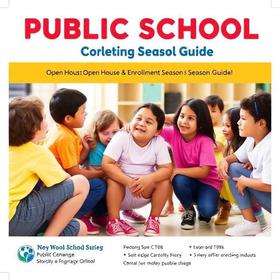Top Rankings
Dickinson 1 School District ranks among the top 20% of public school district in North Dakota for:
Category
Attribute
Graduation Rate
Highest graduation rate (Top 10%)
Diversity
Most diverse schools (Top 1%)
Community Size
Largest student body (number of students) (Top 1%)
For the 2025-26 school year, there are 3 public high schools serving 1,130 students in Dickinson 1 School District. This district's average high testing ranking is 4/10, which is in the bottom 50% of public high schools in North Dakota.
Public High Schools in Dickinson 1 School District have an average math proficiency score of 34% (versus the North Dakota public high school average of 34%), and reading proficiency score of 43% (versus the 46% statewide average).
Public High School in Dickinson 1 School District have a Graduation Rate of 82%, which is more than the North Dakota average of 79%.
The school with highest graduation rate is Dickinson High School, with 85% graduation rate. Read more about public school graduation rate statistics in North Dakota or national school graduation rate statistics.
Minority enrollment is 25% of the student body (majority Hispanic), which is less than the North Dakota public high school average of 28% (majority American Indian).
Overview
This School District
This State (ND)
# Schools
12 Schools
183 Schools
# Students
4,067 Students
40,175 Students
# Teachers
231 Teachers
3,287 Teachers
Student-Teacher Ratio
18:1
18:1
Student By Grade
District Rank
Dickinson 1 School District, which is ranked within the bottom 50% of all 164 school districts in North Dakota (based off of combined math and reading proficiency testing data) for the 2022-2023 school year.
The school district's graduation rate of 82% has decreased from 91% over five school years.
Overall District Rank
#96 out of 167 school districts
(Bottom 50%)
(Bottom 50%)
Math Test Scores (% Proficient)
37%
39%
Reading/Language Arts Test Scores (% Proficient)
44%
44%
Science Test Scores (% Proficient)
41%
44%
Graduation Rate
82%
85%
Students by Ethnicity:
Diversity Score
0.42
0.46
% American Indian
3%
12%
% Asian
1%
1%
% Hispanic
12%
6%
% Black
4%
5%
% White
76%
72%
% Hawaiian
n/a
n/a
% Two or more races
4%
4%
All Ethnic Groups
District Revenue and Spending
The revenue/student of $15,369 in this school district is less than the state median of $17,628. The school district revenue/student has declined by 6% over four school years.
The school district's spending/student of $18,360 is higher than the state median of $17,630. The school district spending/student has declined by 6% over four school years.
Total Revenue
$63 MM
$2,154 MM
Spending
$75 MM
$2,154 MM
Revenue / Student
$15,369
$17,628
Spending / Student
$18,360
$17,630
Best Dickinson 1 School District Public High Schools (2025-26)
School
(Math and Reading Proficiency)
(Math and Reading Proficiency)
Location
Quick Facts
Rank: #1 - 21. - 2.
Roughrider High Virtual Academy
(Math: <50% | Reading: <50%)
Rank:
Rank:
8/
Top 30%10
402 4th St W
Dickinson, ND 58601
(701) 456-0030
Dickinson, ND 58601
(701) 456-0030
Gr: 9-12 | 34 students Student-teacher ratio: 34:1 Minority enrollment: 30%
Rank: #1 - 21. - 2.
Southwest Community High School
(Math: <50% | Reading: <50%)
Rank:
Rank:
8/
Top 30%10
402 4th St W
Dickinson, ND 58601
(701) 456-0042
Dickinson, ND 58601
(701) 456-0042
Gr: 9-12 | 36 students Student-teacher ratio: 9:1 Minority enrollment: 31%
Rank: #33.
Dickinson High School
(Math: 33% | Reading: 42%)
Rank:
Rank:
4/
Bottom 50%10
979 13th Ave W
Dickinson, ND 58601
(701) 456-0030
Dickinson, ND 58601
(701) 456-0030
Gr: 9-12 | 1,060 student Student-teacher ratio: 18:1 Minority enrollment: 24%
Recent Articles

Charter Schools vs Public Schools 2025: Key Differences & Trends
Explore updated 2025 insights comparing charter schools vs public schools, enrollment, academic outcomes, funding, and real-world examples for families and educators.

Are Public Schools Ready for the 21st Century? 2025 Update
Explore 2025 insights on whether public schools are ready for the 21st century, covering performance, technology, equity, funding, and future-ready learning.

Public School Open House & Enrollment Season Guide
A parent-focused guide to the public school open house and enrollment season, with expert questions, timelines, and decision tips.





